 The central theme of this early Gabriel Garcia Márquez story is perception of others. ‘Queen’, the six o’clock regular in José’s restaurant, is a prostitute. Queen’s customers see her as a sex object, to be used and sometimes abused. The police see her as an alcoholic miscreant who cannot be trusted. José, who professes platonic love for Queen, sees the vulnerable human being within. Queen, who claims to be disgusted by all men, sees the caring, kind-hearted José only as someone to be taken advantage of. Other themes: habit, murder, naïveté vs. worldliness, misunderstanding, reputation. More…
The central theme of this early Gabriel Garcia Márquez story is perception of others. ‘Queen’, the six o’clock regular in José’s restaurant, is a prostitute. Queen’s customers see her as a sex object, to be used and sometimes abused. The police see her as an alcoholic miscreant who cannot be trusted. José, who professes platonic love for Queen, sees the vulnerable human being within. Queen, who claims to be disgusted by all men, sees the caring, kind-hearted José only as someone to be taken advantage of. Other themes: habit, murder, naïveté vs. worldliness, misunderstanding, reputation. More…
Category Archives: Short Stories
The Love Potion
 A major theme of this Herman Bosman story is the importance of tradition, myth and storytelling in the lives of Boer settlers. The narrator begins by asserting that everyone in the Marico knows that juba-berry juice can make a woman fall in love with a man. He then relates a tongue-in-cheek story of how he once “helped” a shy policeman use the juice to win a girl’s heart. The ambiguous ending leaves it unclear whether the potion really worked. Other themes: love, fear of rejection, superstition/magic vs. reality, morality (lack of respect for the girl and her right to decide). More…
A major theme of this Herman Bosman story is the importance of tradition, myth and storytelling in the lives of Boer settlers. The narrator begins by asserting that everyone in the Marico knows that juba-berry juice can make a woman fall in love with a man. He then relates a tongue-in-cheek story of how he once “helped” a shy policeman use the juice to win a girl’s heart. The ambiguous ending leaves it unclear whether the potion really worked. Other themes: love, fear of rejection, superstition/magic vs. reality, morality (lack of respect for the girl and her right to decide). More…
The Disappearance
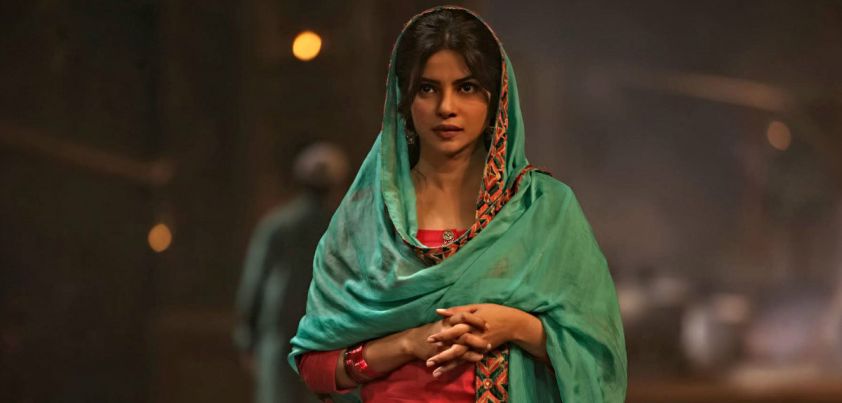 Chitra Divakaruni’s hard-hitting story of a woman’s “disappearance” is told from her Indian-American husband’s point of view. After a year of denial, he accepts that she has left him. Their arranged marriage, although blessed with a son, had become intolerable for her. Years later, living in a nursing home and estranged from their son, he reflects on how much his wife must have hated him to leave the boy. The old man still fails to appreciate the effect his repression and sexual abuse would have had upon the poor woman! Themes: insensitivity, authoritarianism, marital rape. More…
Chitra Divakaruni’s hard-hitting story of a woman’s “disappearance” is told from her Indian-American husband’s point of view. After a year of denial, he accepts that she has left him. Their arranged marriage, although blessed with a son, had become intolerable for her. Years later, living in a nursing home and estranged from their son, he reflects on how much his wife must have hated him to leave the boy. The old man still fails to appreciate the effect his repression and sexual abuse would have had upon the poor woman! Themes: insensitivity, authoritarianism, marital rape. More…
The Happiest I’ve Been
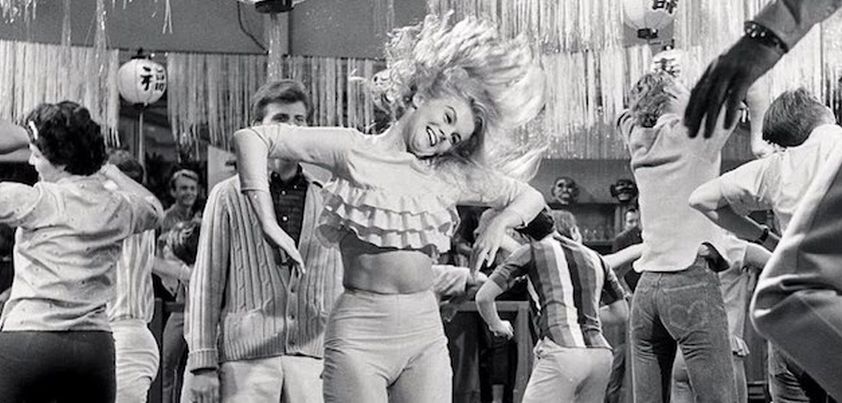 This acclaimed story from John Updike concludes with the protagonist attributing his overwhelming happiness to driving a powerful car through the stunning Pennsylvania countryside, blessed irresponsibility, a waiting girl who would marry him, and twice being trusted enough for someone to fall asleep beside him. The second-year university student is on the cusp of manhood. Observing the party he had been going to all his life the previous night taught the shy loner that he, along with his friends, have out-grown childhood and need to move on with their lives. Themes: solitude, nostalgia, transition (from childhood to adulthood), looking ahead. More…
This acclaimed story from John Updike concludes with the protagonist attributing his overwhelming happiness to driving a powerful car through the stunning Pennsylvania countryside, blessed irresponsibility, a waiting girl who would marry him, and twice being trusted enough for someone to fall asleep beside him. The second-year university student is on the cusp of manhood. Observing the party he had been going to all his life the previous night taught the shy loner that he, along with his friends, have out-grown childhood and need to move on with their lives. Themes: solitude, nostalgia, transition (from childhood to adulthood), looking ahead. More…
The Cask of Amontillado
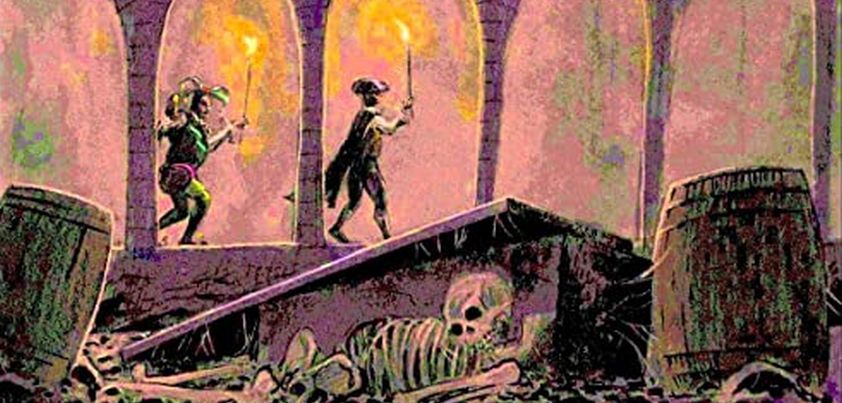 There is not much one can add to what has already been written about this classic tale from Edgar Allan Poe. Widely regarded as one of the world’s greatest Gothic horror stories, it is yet another example of Poe’s ability to supplement situational horror with insights into the twisted minds of his protagonists. The horror aspect of this story about a wine-tasting gone wrong (or right, depending on how you look at it) is enhanced by the ambiguity about the seriousness of the “insult” that lead to the victim’s claustrophobic end. Themes: revenge, trust/deceit, pride, envy, mortality, confession. More…
There is not much one can add to what has already been written about this classic tale from Edgar Allan Poe. Widely regarded as one of the world’s greatest Gothic horror stories, it is yet another example of Poe’s ability to supplement situational horror with insights into the twisted minds of his protagonists. The horror aspect of this story about a wine-tasting gone wrong (or right, depending on how you look at it) is enhanced by the ambiguity about the seriousness of the “insult” that lead to the victim’s claustrophobic end. Themes: revenge, trust/deceit, pride, envy, mortality, confession. More…
Love Must Not Be Forgotten
 This story from Zhang Jie challenges the traditional (1970s) Chinese view that a woman’s duty is to marry and raise a family. The protagonist has concerns about her relationship with a seemingly “ideal” man, questioning both their feelings for one another and the poor guy’s intelligence. After reflecting on memories of growing up and insights gained from her deceased mother’s diary, she reaches the progressive conclusion that remaining single and waiting for the right man is better than a loveless marriage. Themes: social pressure, marriage, the nature of love, mother-daughter relationships, courage, Communist ideology. More…
This story from Zhang Jie challenges the traditional (1970s) Chinese view that a woman’s duty is to marry and raise a family. The protagonist has concerns about her relationship with a seemingly “ideal” man, questioning both their feelings for one another and the poor guy’s intelligence. After reflecting on memories of growing up and insights gained from her deceased mother’s diary, she reaches the progressive conclusion that remaining single and waiting for the right man is better than a loveless marriage. Themes: social pressure, marriage, the nature of love, mother-daughter relationships, courage, Communist ideology. More…
Silver Water
 Amy Bloom’s deeply moving Silver Water examines an often-overlooked aspect of mental illness: its impact on the sufferer’s family. Throughout the story, the parents (Galen and David) and their two “warrior queen” daughters struggle to navigate their way through inadequate medical insurance and mental illness support systems. In the process, they demonstrate what family love is all about. There is considerable irony in the fact that David (a psychiatrist!) not only failed to diagnose his daughter’s condition, but also has the most difficulty coping with her at home. Themes: mental illness, family love, death as a relief. More…
Amy Bloom’s deeply moving Silver Water examines an often-overlooked aspect of mental illness: its impact on the sufferer’s family. Throughout the story, the parents (Galen and David) and their two “warrior queen” daughters struggle to navigate their way through inadequate medical insurance and mental illness support systems. In the process, they demonstrate what family love is all about. There is considerable irony in the fact that David (a psychiatrist!) not only failed to diagnose his daughter’s condition, but also has the most difficulty coping with her at home. Themes: mental illness, family love, death as a relief. More…
A Christmas Story
 In this Christmas story from Walter Dean Myers, a shrewd old woman teaches a new police patrolman an important lesson by inviting his family to Christmas dinner. Along with his co-workers, the policeman has a negative view of Harlem (the poor, often violent African American neighborhood in which he works) and doesn’t think it a fit place for a family visit. His wife insists on going, and the visit reveals another side of the community: “regular”, churchgoing families exchanging Christmas greetings on the street and celebrating the holiday together. Themes: Christmas, community, prejudice, understanding, aging gracefully, caring, sharing. More…
In this Christmas story from Walter Dean Myers, a shrewd old woman teaches a new police patrolman an important lesson by inviting his family to Christmas dinner. Along with his co-workers, the policeman has a negative view of Harlem (the poor, often violent African American neighborhood in which he works) and doesn’t think it a fit place for a family visit. His wife insists on going, and the visit reveals another side of the community: “regular”, churchgoing families exchanging Christmas greetings on the street and celebrating the holiday together. Themes: Christmas, community, prejudice, understanding, aging gracefully, caring, sharing. More…
The First Year of My Life
 The protagonist of this light-hearted anti-war story by Muriel Spark is an omniscient baby who can “tune in” to world events and the thoughts of famous people from her crib. Born in the final year of World War I, she contrasts the bloody battlefields of Europe with the almost business as usual atmosphere in London. She also shares her observations of selected world leaders, politicians, literary figures and celebrities. Themes: the horrors and futility of war; the British public’s ignorance of the true extent of human suffering; the lack of moral leadership from influential members of the artistic community. More…
The protagonist of this light-hearted anti-war story by Muriel Spark is an omniscient baby who can “tune in” to world events and the thoughts of famous people from her crib. Born in the final year of World War I, she contrasts the bloody battlefields of Europe with the almost business as usual atmosphere in London. She also shares her observations of selected world leaders, politicians, literary figures and celebrities. Themes: the horrors and futility of war; the British public’s ignorance of the true extent of human suffering; the lack of moral leadership from influential members of the artistic community. More…
Three Skeleton Key
 Last year we featured Leiningen Versus the Ants, a story in which 400 men try to fight off an army of killer ants. In today’s tale by George Toudouze, three men are trapped inside an isolated lighthouse, surrounded by a horde of starving rats. One of the men is prone to panic and loses his mind when the rats break in to the lower part of the tower. The other two remain calm and, although a serious breach of duty, agree on a desperate course of action that saves the day. Themes: man vs. nature, fear, calmness under pressure. More…
Last year we featured Leiningen Versus the Ants, a story in which 400 men try to fight off an army of killer ants. In today’s tale by George Toudouze, three men are trapped inside an isolated lighthouse, surrounded by a horde of starving rats. One of the men is prone to panic and loses his mind when the rats break in to the lower part of the tower. The other two remain calm and, although a serious breach of duty, agree on a desperate course of action that saves the day. Themes: man vs. nature, fear, calmness under pressure. More…
Clean Sweep Ignatius
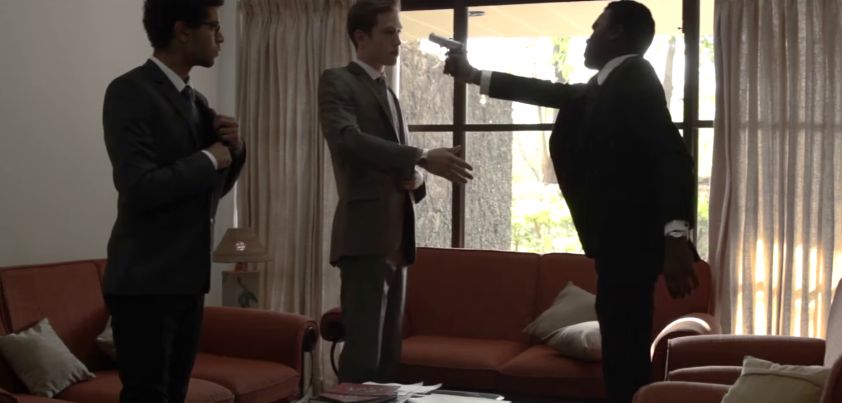 Jeffrey Archer has come up with an almost unimaginable scenario. Nigeria has a new Finance Minister, Ignatius Agarbi, who decides to clear up his country’s reputation for corruption! He does such a good job, without so much as a breath of scandal, that the country’s President commissions him to find out the names of all ministers and government officials with money hidden away in secret Swiss bank accounts. Diligent as always, Ignatius devises a seemingly foolproof plan to find out just how serious Swiss banks are in maintaining their code of privacy. Themes: corruption, creativity, honor. More…
Jeffrey Archer has come up with an almost unimaginable scenario. Nigeria has a new Finance Minister, Ignatius Agarbi, who decides to clear up his country’s reputation for corruption! He does such a good job, without so much as a breath of scandal, that the country’s President commissions him to find out the names of all ministers and government officials with money hidden away in secret Swiss bank accounts. Diligent as always, Ignatius devises a seemingly foolproof plan to find out just how serious Swiss banks are in maintaining their code of privacy. Themes: corruption, creativity, honor. More…
The Kugelmass Episode
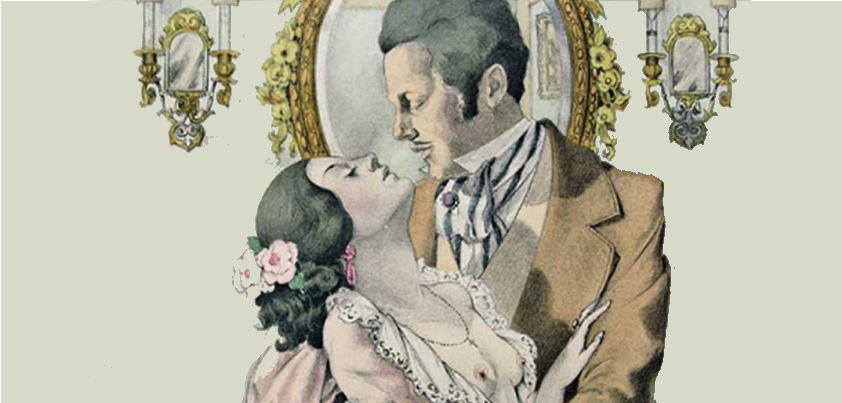 This Woody Allen story includes elements of fantasy, science fiction and farce. Kugelmass, bored with his “oafish” wife, wants a lustful extra-marital affair with no commitments either way. His wish seemingly comes true when a failed magician offers him a chance to seduce any woman from world literature. His first choice begins well, but ends badly; his second proves disastrous. The story is a cutting satire of America’s 1970s ‘Me’ culture. Themes include psychological well-being, marital relationships and casual sex. Ironically, instead of “having” the affair he wanted, Kugelmass spends the rest of eternity running from hairy, long-legged Spanish “haves”. More…
This Woody Allen story includes elements of fantasy, science fiction and farce. Kugelmass, bored with his “oafish” wife, wants a lustful extra-marital affair with no commitments either way. His wish seemingly comes true when a failed magician offers him a chance to seduce any woman from world literature. His first choice begins well, but ends badly; his second proves disastrous. The story is a cutting satire of America’s 1970s ‘Me’ culture. Themes include psychological well-being, marital relationships and casual sex. Ironically, instead of “having” the affair he wanted, Kugelmass spends the rest of eternity running from hairy, long-legged Spanish “haves”. More…
Saboteur
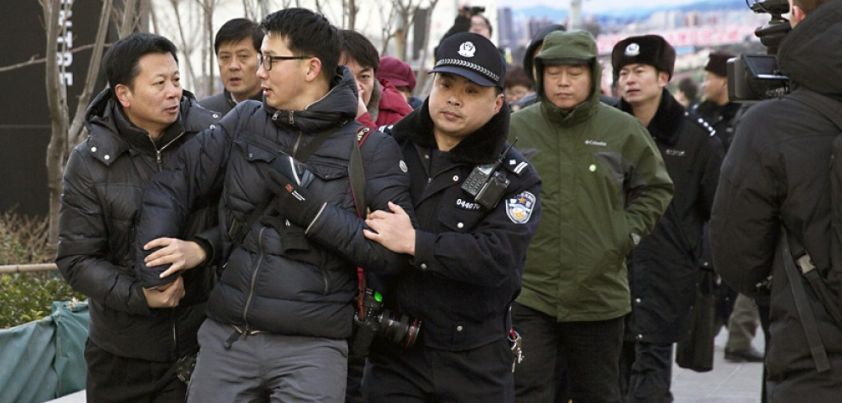 This story from Ha Jin begins with what appears to be a simple shakedown attempt by two corrupt Chinese policemen. The victim, who should have known better, attracts the attention of onlookers (who do nothing), resists arrest (a bad move) and challenges their station officer’s authority (bringing a weekend locked up in miserable conditions). When forced to “confess”, he faces loss of his reputation, job and wife. On release, he morphs from victim to villain. The original trumped-up charge was sabotage; his act of revenge is more like biological terrorism! Themes: police brutality and abuse of power, injustice, capitulation, revenge. More…
This story from Ha Jin begins with what appears to be a simple shakedown attempt by two corrupt Chinese policemen. The victim, who should have known better, attracts the attention of onlookers (who do nothing), resists arrest (a bad move) and challenges their station officer’s authority (bringing a weekend locked up in miserable conditions). When forced to “confess”, he faces loss of his reputation, job and wife. On release, he morphs from victim to villain. The original trumped-up charge was sabotage; his act of revenge is more like biological terrorism! Themes: police brutality and abuse of power, injustice, capitulation, revenge. More…
Korea
 Despite the title, this acclaimed story from John McGahern has almost nothing to do with Korea. Set in Ireland, a father opens up to his teenage son about his traumatic experiences during the War of Independence. He was clearly scarred by them, and may have suffered what we now know as PTSD. The son is about to leave school, and the father encourages him to consider emigrating to America for a better life. The son later learns that what the father is really hoping for is a better life for himself. Themes: war, father-son relationships, desperation, betrayal, coming of age. More…
Despite the title, this acclaimed story from John McGahern has almost nothing to do with Korea. Set in Ireland, a father opens up to his teenage son about his traumatic experiences during the War of Independence. He was clearly scarred by them, and may have suffered what we now know as PTSD. The son is about to leave school, and the father encourages him to consider emigrating to America for a better life. The son later learns that what the father is really hoping for is a better life for himself. Themes: war, father-son relationships, desperation, betrayal, coming of age. More…
Woman Hollering Creek
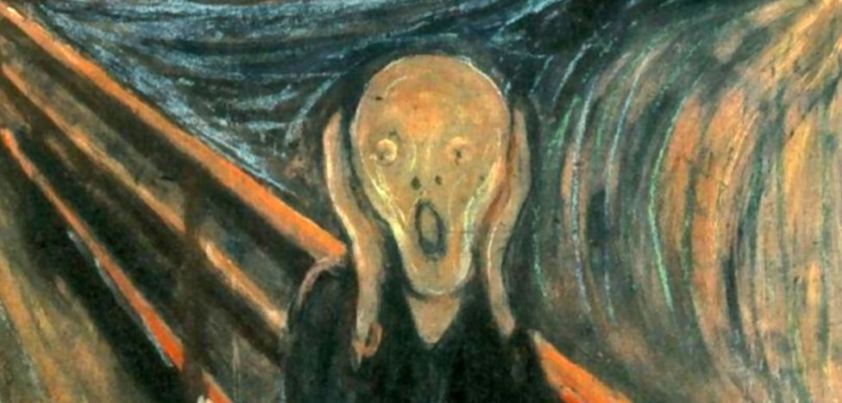 Cleófilas, Sandra Cisneros’s Mexican protagonist, finds the grass no greener when she marries and moves to a town “on the other side”. Moreover, poverty, language and distance leave her with nobody to turn to when her dreams of love and passion become a nightmare. Fortunately, her father has foreseen the possibility and left the home door open. Thanks to a kind woman with a pickup truck and piercing scream, she returns stronger and, one hopes, empowered to strive for a better future. Themes: parental vs. romantic love, cultural traditions (wives as ‘property’), gender roles, isolation, marital abuse. More…
Cleófilas, Sandra Cisneros’s Mexican protagonist, finds the grass no greener when she marries and moves to a town “on the other side”. Moreover, poverty, language and distance leave her with nobody to turn to when her dreams of love and passion become a nightmare. Fortunately, her father has foreseen the possibility and left the home door open. Thanks to a kind woman with a pickup truck and piercing scream, she returns stronger and, one hopes, empowered to strive for a better future. Themes: parental vs. romantic love, cultural traditions (wives as ‘property’), gender roles, isolation, marital abuse. More…
House Taken Over
 Said to be Julio Cortázar’s first published story, this suspenseful tale is about a middle-aged brother and sister who, having never married, live quiet but contented lives in their aging family mansion. One night, their solitude is interrupted by strange noises coming from a disused wing of the house. The brother locks and bolts the door leading to that part of the house. Unfortunately, the title foreshadows the final outcome. The brother and sister know the identity of the intruders (referred to only as “they”), but this is not shared with the reader. Themes: the idle rich, isolation, fear, change. More…
Said to be Julio Cortázar’s first published story, this suspenseful tale is about a middle-aged brother and sister who, having never married, live quiet but contented lives in their aging family mansion. One night, their solitude is interrupted by strange noises coming from a disused wing of the house. The brother locks and bolts the door leading to that part of the house. Unfortunately, the title foreshadows the final outcome. The brother and sister know the identity of the intruders (referred to only as “they”), but this is not shared with the reader. Themes: the idle rich, isolation, fear, change. More…
A Passion in the Desert
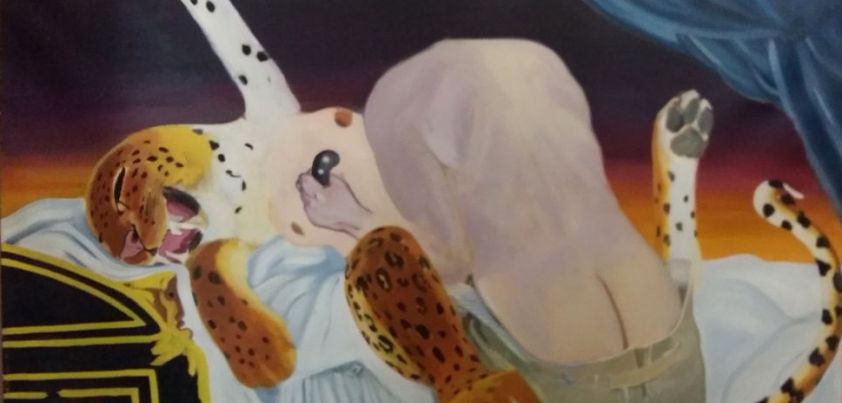 This story by Honoré de Balzac recounts the adventures of a French soldier lost in the Egyptian desert during the Napoleonic conquests. He finds a small oasis, but soon realizes that it is already occupied… by a leopard! He befriends the beast and the two manage to co-exist, with the leopard becoming more and more trusting and playful. Although he describes the (female) leopard in increasingly sensual terms, he later learns that the desert holds other passions: (In the desert there is everything and nothing… it is God without mankind.) Themes: isolation, animal/human bonding, distrust, betrayal, finding God in nature. More…
This story by Honoré de Balzac recounts the adventures of a French soldier lost in the Egyptian desert during the Napoleonic conquests. He finds a small oasis, but soon realizes that it is already occupied… by a leopard! He befriends the beast and the two manage to co-exist, with the leopard becoming more and more trusting and playful. Although he describes the (female) leopard in increasingly sensual terms, he later learns that the desert holds other passions: (In the desert there is everything and nothing… it is God without mankind.) Themes: isolation, animal/human bonding, distrust, betrayal, finding God in nature. More…
The Green Leaves
 This story from Grace Ogot reads like a folktale. With an overall theme of culture conflict between the modern world and the traditions and beliefs of a Kenyan tribe, the plot can be divided into three sections. The first (ending with Nyagar’s death) has themes of crime, tribal justice, violence, superstition and greed. The second, involving the British authorities, emphasizes colonial arrogance and cultural insensitivity. The third, in which Nyagar’s wife laments his death, introduces a feminist theme. Her chant reflects not only her own loss, but also the powerlessness and complete dependence of all village women on their husbands. More…
This story from Grace Ogot reads like a folktale. With an overall theme of culture conflict between the modern world and the traditions and beliefs of a Kenyan tribe, the plot can be divided into three sections. The first (ending with Nyagar’s death) has themes of crime, tribal justice, violence, superstition and greed. The second, involving the British authorities, emphasizes colonial arrogance and cultural insensitivity. The third, in which Nyagar’s wife laments his death, introduces a feminist theme. Her chant reflects not only her own loss, but also the powerlessness and complete dependence of all village women on their husbands. More…
A Worn Path
 In this Eudora Welty story, an aged woman makes a long, dangerous trek through the Mississippi woods. Its power lies in the vivid descriptions of nature and the various obstacles she encounters. Once in town, she struggles to remember the purpose of the journey. Although we learn later that she has come for the regular medicine needed by her ailing grandson, many readers question if the boy still lives. Her confusion suggests that such visits may simply be a way of handling the grief (or guilt) associated with his death. Themes: nature, old age, perseverance, duty, poverty, dignity, racism, redemption. More…
In this Eudora Welty story, an aged woman makes a long, dangerous trek through the Mississippi woods. Its power lies in the vivid descriptions of nature and the various obstacles she encounters. Once in town, she struggles to remember the purpose of the journey. Although we learn later that she has come for the regular medicine needed by her ailing grandson, many readers question if the boy still lives. Her confusion suggests that such visits may simply be a way of handling the grief (or guilt) associated with his death. Themes: nature, old age, perseverance, duty, poverty, dignity, racism, redemption. More…
Han’s Crime
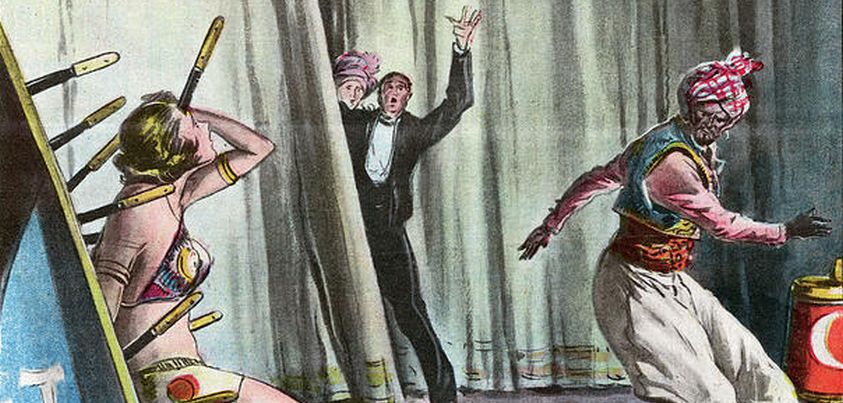 The crime referred to in this fascinating psychological narrative by Shiga Naoya is either murder or manslaughter. A theatre performer (Han) kills his wife during a knife-throwing act. At the end of questioning, the judge asks: Do you not feel the slightest sorrow for your wife’s death? Han answers: None at all! …I never could have imagined I would feel such happiness in talking about her death. The judge (and readers) must decide if the death was a crime or terrible accident. Themes: illegitimacy, infanticide, toxic marriage, conscious vs unconscious actions, legal vs moral guilt, doubt vs certainty. More…
The crime referred to in this fascinating psychological narrative by Shiga Naoya is either murder or manslaughter. A theatre performer (Han) kills his wife during a knife-throwing act. At the end of questioning, the judge asks: Do you not feel the slightest sorrow for your wife’s death? Han answers: None at all! …I never could have imagined I would feel such happiness in talking about her death. The judge (and readers) must decide if the death was a crime or terrible accident. Themes: illegitimacy, infanticide, toxic marriage, conscious vs unconscious actions, legal vs moral guilt, doubt vs certainty. More…
Dog Star
 Dog Star illustrates science fiction writer Arthur C. Clarke’s sentimental side. Despite the title, the story has nothing to do with stars of the celestial kind. It does however feature a dog. An introverted astronomer finds and raises a lost puppy. On two occasions, the dog’s heightened senses save his life. The second time, the dog had been long dead. If you love animals, especially dogs, you are sure to be moved by the story. But BE WARNED… the conclusion has been known to bring tears to the eyes. Themes: kindness, human/animal bonding, career sacrifice, supernatural connections. More…
Dog Star illustrates science fiction writer Arthur C. Clarke’s sentimental side. Despite the title, the story has nothing to do with stars of the celestial kind. It does however feature a dog. An introverted astronomer finds and raises a lost puppy. On two occasions, the dog’s heightened senses save his life. The second time, the dog had been long dead. If you love animals, especially dogs, you are sure to be moved by the story. But BE WARNED… the conclusion has been known to bring tears to the eyes. Themes: kindness, human/animal bonding, career sacrifice, supernatural connections. More…
Everything That Rises Must Converge
 Flannery O’connor is known for emphasizing her themes through flawed, often thoroughly dislikeable characters. In this story, she has paired a bigoted mother living in the past with a callous, disrespectful son. The son, a college graduate, considers himself intellectually and morally superior to his mother and delights in antagonizing the poor woman. The unfortunate climax comes at the end of a city bus trip when the mother insults her African American “doppelganger” by offering the woman’s young child a penny. Themes include (through Mrs. Chestny) sacrifice, heritage & appearance vs. character, racism; (through Julian) lack of respect, cruelty, self-deception. More…
Flannery O’connor is known for emphasizing her themes through flawed, often thoroughly dislikeable characters. In this story, she has paired a bigoted mother living in the past with a callous, disrespectful son. The son, a college graduate, considers himself intellectually and morally superior to his mother and delights in antagonizing the poor woman. The unfortunate climax comes at the end of a city bus trip when the mother insults her African American “doppelganger” by offering the woman’s young child a penny. Themes include (through Mrs. Chestny) sacrifice, heritage & appearance vs. character, racism; (through Julian) lack of respect, cruelty, self-deception. More…
Toba Tek Singh
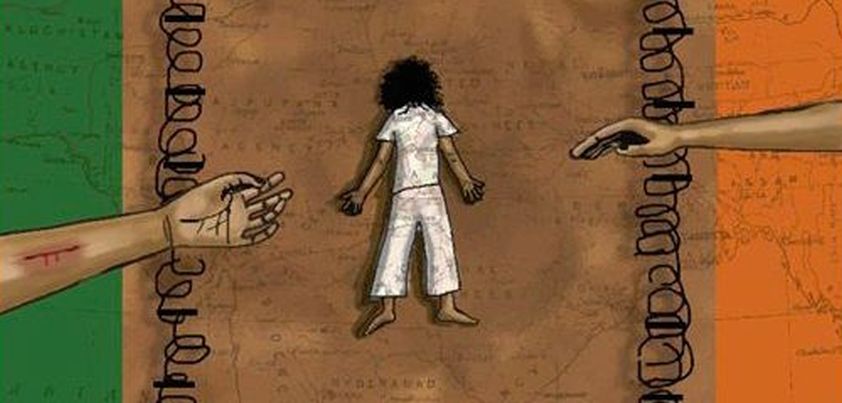 This month marks the 75th anniversary of the partition of British India into two countries: Hindustan and Pakistan. Some years ago we featured Rajinder Singh Bedi’s Lajwanti, a Partition story from an Indian viewpoint. In honor of the occasion, we are pleased to provide this story from the Pakistan side by controversial writer Saadat Hasan Manto. This is not your usual Partition story of mass displacement and violence. Instead, it is a clever satire of the governments of the two countries, as reflected in a decision several years later to exchange institutionalized lunatics. Themes: insanity, separation, religious segregation, nationality, confusion, belonging. More…
This month marks the 75th anniversary of the partition of British India into two countries: Hindustan and Pakistan. Some years ago we featured Rajinder Singh Bedi’s Lajwanti, a Partition story from an Indian viewpoint. In honor of the occasion, we are pleased to provide this story from the Pakistan side by controversial writer Saadat Hasan Manto. This is not your usual Partition story of mass displacement and violence. Instead, it is a clever satire of the governments of the two countries, as reflected in a decision several years later to exchange institutionalized lunatics. Themes: insanity, separation, religious segregation, nationality, confusion, belonging. More…
Life
 Bessie Head sums up this story in a song title: “That’s What Happens When Two Worlds Collide”. Life, an attractive young prostitute, is forcibly relocated from the bright lights of Johannesburg to her home village in Botswana. Although premarital sex is an integral part of village life, payment for it is unheard of. Life shocks the villagers by taking up her old profession. They are even more shocked when she marries the village’s most eligible bachelor. Themes: village vs. city life (monotony vs. excitement, subsistence vs. easy money), cultural traditions (sexual norms, male domination, women as property), change, oppression, emancipation. More…
Bessie Head sums up this story in a song title: “That’s What Happens When Two Worlds Collide”. Life, an attractive young prostitute, is forcibly relocated from the bright lights of Johannesburg to her home village in Botswana. Although premarital sex is an integral part of village life, payment for it is unheard of. Life shocks the villagers by taking up her old profession. They are even more shocked when she marries the village’s most eligible bachelor. Themes: village vs. city life (monotony vs. excitement, subsistence vs. easy money), cultural traditions (sexual norms, male domination, women as property), change, oppression, emancipation. More…
Sweet Potato Pie
 Like the titular pie, life is sweet for a professor and his cab-driving older brother. The themes in this heart-warming Eugenia Collier story (poverty, family, sacrifice, education and gratitude) lie in how the two got where they are. A close-knit family works together to survive poverty, with the older children caring for the young and leaving school as soon as possible. The family can afford for only one child (the professor) to complete his education. Although his brother proudly hails him as a “somebody”, it is clear that their childhood experiences have helped both make successes of their lives. More…
Like the titular pie, life is sweet for a professor and his cab-driving older brother. The themes in this heart-warming Eugenia Collier story (poverty, family, sacrifice, education and gratitude) lie in how the two got where they are. A close-knit family works together to survive poverty, with the older children caring for the young and leaving school as soon as possible. The family can afford for only one child (the professor) to complete his education. Although his brother proudly hails him as a “somebody”, it is clear that their childhood experiences have helped both make successes of their lives. More…
Walker Brothers Cowboy
 Although set in rural Ontario, there isn’t a cow to be seen in this Depression-era story from Alice Munro. The “cowboy”, once a successful fox farmer, is now a door-to-door household product salesman. The story’s central themes are father-daughter relationships, poverty, pride, dealing with reduced circumstances, and nostalgia. The man’s wife is bitterly resentful of the extent to which the family have “come down” in the world, while an arguably worse-off ex-girlfriend he and his children visit during one of his rounds is still able to enjoy life. Understandably, his daughter (the narrator) is somewhat disturbed by the meeting. More…
Although set in rural Ontario, there isn’t a cow to be seen in this Depression-era story from Alice Munro. The “cowboy”, once a successful fox farmer, is now a door-to-door household product salesman. The story’s central themes are father-daughter relationships, poverty, pride, dealing with reduced circumstances, and nostalgia. The man’s wife is bitterly resentful of the extent to which the family have “come down” in the world, while an arguably worse-off ex-girlfriend he and his children visit during one of his rounds is still able to enjoy life. Understandably, his daughter (the narrator) is somewhat disturbed by the meeting. More…
Yesterday was Beautiful
 With the devastation currently taking place in Ukraine, we have decided to feature a story highlighting the misery of innocent victims of war. Roald Dahl’s short stories are known for their dark comedy and unexpected endings. There is nothing funny about this story. However, he does manage an unexpected twist that emphasizes the overall theme reflected in the title: In war, things can go from “beautiful” to your worst nightmare overnight. Other themes: (for civilians) indiscriminate bombing, senseless death and destruction, psychological trauma, anger, revenge; (for combatants) collateral damage, personal survival. More…
With the devastation currently taking place in Ukraine, we have decided to feature a story highlighting the misery of innocent victims of war. Roald Dahl’s short stories are known for their dark comedy and unexpected endings. There is nothing funny about this story. However, he does manage an unexpected twist that emphasizes the overall theme reflected in the title: In war, things can go from “beautiful” to your worst nightmare overnight. Other themes: (for civilians) indiscriminate bombing, senseless death and destruction, psychological trauma, anger, revenge; (for combatants) collateral damage, personal survival. More…
The Summer Solstice
 This story by Filipino writer Nick Joaquin takes place over the final two days of a “hybrid” religious festival. Because both take place over the summer solstice, the Catholic feast of St John and pagan Tadtarin fertility rituals are celebrated together. Tadtarin is performed exclusively by women (or men dressed up as women), invoking their power to ensure a bountiful harvest. Events lead to an unsettling climax where a usually submissive wife pitilessly humiliates her rich landowner husband. Themes include gender stereotypes (especially male domination and cruelty towards women) and cultural changes brought about by Westernization. More…
This story by Filipino writer Nick Joaquin takes place over the final two days of a “hybrid” religious festival. Because both take place over the summer solstice, the Catholic feast of St John and pagan Tadtarin fertility rituals are celebrated together. Tadtarin is performed exclusively by women (or men dressed up as women), invoking their power to ensure a bountiful harvest. Events lead to an unsettling climax where a usually submissive wife pitilessly humiliates her rich landowner husband. Themes include gender stereotypes (especially male domination and cruelty towards women) and cultural changes brought about by Westernization. More…
A Perfect Day for Bananafish
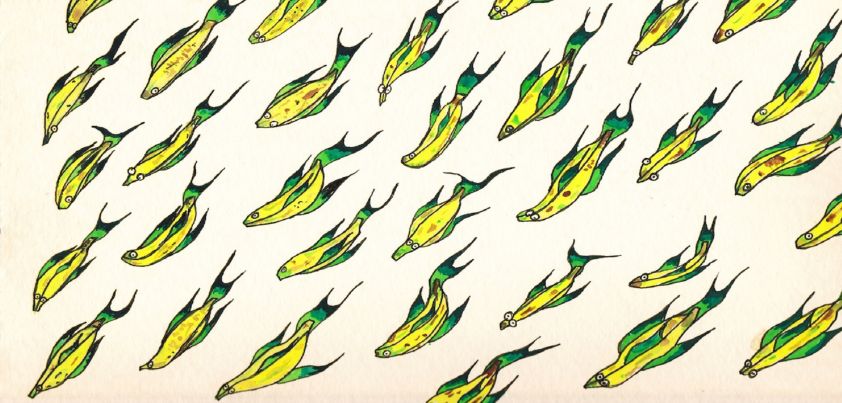 The major theme of this J. D. Salinger story is an extension of another we have featured by the same author. In For Esmé with Love and Squalor, a teenager’s friendship and compassion help a young soldier recover from PTSD. Here, a returned soldier is suffering its long-term effects. He copes by trying to avoid the company of adults (including his vain, materialistic wife) and finds pleasure in music, poetry and spending time with young children. Major themes: the effects of war on mental health, alienation, loneliness, childhood innocence, vanity and materialism, suicide. More…
The major theme of this J. D. Salinger story is an extension of another we have featured by the same author. In For Esmé with Love and Squalor, a teenager’s friendship and compassion help a young soldier recover from PTSD. Here, a returned soldier is suffering its long-term effects. He copes by trying to avoid the company of adults (including his vain, materialistic wife) and finds pleasure in music, poetry and spending time with young children. Major themes: the effects of war on mental health, alienation, loneliness, childhood innocence, vanity and materialism, suicide. More…
The Red Bow
 This dystopian story from George Saunders is often referred to as a metaphor for the post 9-11 Afghan and Iraq Wars. It is also an allegory of a much older, far-reaching problem: ethnic cleansing. A small group of dogs (people) is seen as a direct threat and are eliminated. After this, paranoia sets in. All dogs and cats (minority groups) become suspect and must also be removed. The dictatorial rise of Uncle Max by exploiting fear of the perceived “enemy” is also symbolic of the way many world leaders have come to power. Themes: tragedy, grief, paranoia, protection, authoritarianism. More…
This dystopian story from George Saunders is often referred to as a metaphor for the post 9-11 Afghan and Iraq Wars. It is also an allegory of a much older, far-reaching problem: ethnic cleansing. A small group of dogs (people) is seen as a direct threat and are eliminated. After this, paranoia sets in. All dogs and cats (minority groups) become suspect and must also be removed. The dictatorial rise of Uncle Max by exploiting fear of the perceived “enemy” is also symbolic of the way many world leaders have come to power. Themes: tragedy, grief, paranoia, protection, authoritarianism. More…
And of Clay Are We Created
 This confronting story from Isabel Allende is based on the real life plight of Omayra Sánchez, killed in a volcanic eruption in 1985. It highlights the confusion and suffering that often accompanies natural disasters, and the human and psychological tolls on both victims and responders. The irony of the story is that despite the massive resources employed by news agencies to cover the incident, they were unable to locate and bring in a pump to save the girl. Themes include man against nature, compassion, courage, faith/acceptance of fate, the healing effect of facing and sharing past tragedies. More…
This confronting story from Isabel Allende is based on the real life plight of Omayra Sánchez, killed in a volcanic eruption in 1985. It highlights the confusion and suffering that often accompanies natural disasters, and the human and psychological tolls on both victims and responders. The irony of the story is that despite the massive resources employed by news agencies to cover the incident, they were unable to locate and bring in a pump to save the girl. Themes include man against nature, compassion, courage, faith/acceptance of fate, the healing effect of facing and sharing past tragedies. More…
This Way for the Gas, Ladies and Gentlemen
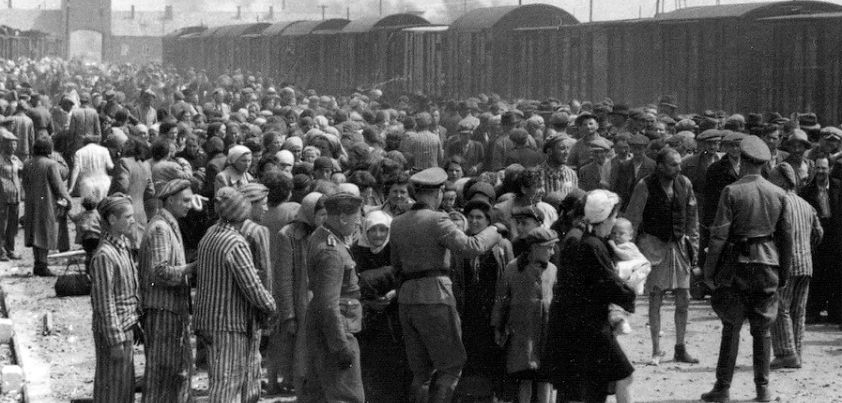 This almost clinical account of Tadeusz Borowski’s holocaust experiences explores an often overlooked aspect of the so-called “final solution”: how general prisoners forced to assist in sending the condemned to gas chambers became so desensitized to the brutality that many actively participated in it. Because of their access to discarded food and clothing, these men formed the “elite” among the prisoner hierarchy. In camp, their insensitivity to suffering prevailed and many looked down on and showed little compassion for the plight of “less fortunate” fellow inmates. Themes: man’s inhumanity to man, death and suffering, the survival instinct, detachment, guilt, rationalization. More…
This almost clinical account of Tadeusz Borowski’s holocaust experiences explores an often overlooked aspect of the so-called “final solution”: how general prisoners forced to assist in sending the condemned to gas chambers became so desensitized to the brutality that many actively participated in it. Because of their access to discarded food and clothing, these men formed the “elite” among the prisoner hierarchy. In camp, their insensitivity to suffering prevailed and many looked down on and showed little compassion for the plight of “less fortunate” fellow inmates. Themes: man’s inhumanity to man, death and suffering, the survival instinct, detachment, guilt, rationalization. More…
The Minister’s Black Veil
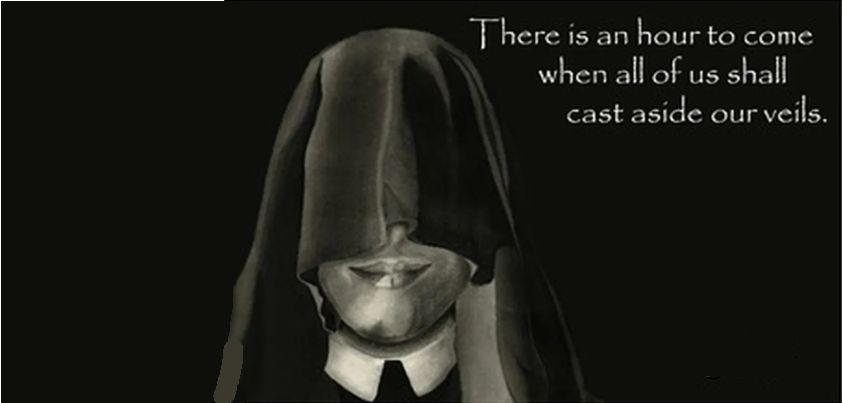 In this Nathaniel Hawthorne story, a church minister frightens and intrigues parishioners by spending most of his life hiding his face behind a black veil. themes include uncertainty (Why the veil?), alienation and loneliness, hidden sins (for which the veil may be a symbol), moral superiority, guilt, fear, and death. Most readers consider the story from the parishioner’s side. However, it is interesting to contemplate how dark the world must look to the minister. Is the veil the equivalent of the dream by a character in another Hawthorne story (Young Goodman Brown): a reminder of the evil in every man? More…
In this Nathaniel Hawthorne story, a church minister frightens and intrigues parishioners by spending most of his life hiding his face behind a black veil. themes include uncertainty (Why the veil?), alienation and loneliness, hidden sins (for which the veil may be a symbol), moral superiority, guilt, fear, and death. Most readers consider the story from the parishioner’s side. However, it is interesting to contemplate how dark the world must look to the minister. Is the veil the equivalent of the dream by a character in another Hawthorne story (Young Goodman Brown): a reminder of the evil in every man? More…
The White Horses of Vienna
 This story from Kay Boyle reflects the rise of Austrian Nazism in the early 1930s. Its main characters are an injured doctor (and Nazi sympathizer), his anti-Semitic wife, and a Jewish locum sent to work with them. The story neither condemns nor condones Nazism. A puppet show alludes to the injured doctor’s political ideals; a tale about Vienna’s famed Lipizzaner horses is a metaphor for the fall of the Austrian Empire and the dire economic circumstances that will soon encourage the government to welcome Hitler’s armies. Themes include isolation and natural beauty, family, racism, fascism, activism vs. acceptance. More…
This story from Kay Boyle reflects the rise of Austrian Nazism in the early 1930s. Its main characters are an injured doctor (and Nazi sympathizer), his anti-Semitic wife, and a Jewish locum sent to work with them. The story neither condemns nor condones Nazism. A puppet show alludes to the injured doctor’s political ideals; a tale about Vienna’s famed Lipizzaner horses is a metaphor for the fall of the Austrian Empire and the dire economic circumstances that will soon encourage the government to welcome Hitler’s armies. Themes include isolation and natural beauty, family, racism, fascism, activism vs. acceptance. More…
God Sees the Truth, But Waits
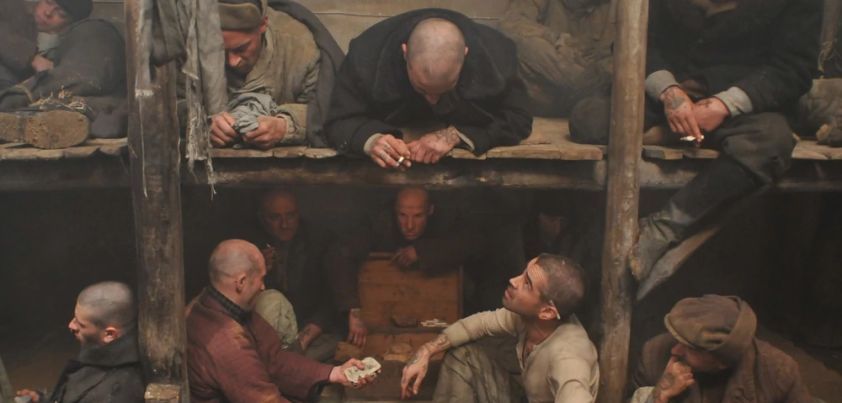 This is one of Leo Tolstoy’s earlier short stories, published between his two epic novels War and Peace and Anna Karenina, and thirteen years before What Men Live By. It has themes of injustice, acceptance, forgiveness and redemption. The protagonist suffers a dramatic fall in worldly terms, which is more than matched by his growth in spiritual grace. The plot was not new. It is a re-working of an almost identical tale from War and Peace related by peasant character Platon Karataev. The novel was written for the Russian nobility; this version was targeted at its common people. More…
This is one of Leo Tolstoy’s earlier short stories, published between his two epic novels War and Peace and Anna Karenina, and thirteen years before What Men Live By. It has themes of injustice, acceptance, forgiveness and redemption. The protagonist suffers a dramatic fall in worldly terms, which is more than matched by his growth in spiritual grace. The plot was not new. It is a re-working of an almost identical tale from War and Peace related by peasant character Platon Karataev. The novel was written for the Russian nobility; this version was targeted at its common people. More…
The Demon Lover
 In this horror story by Elizabeth Bowen, a woman returns to her large, war-damaged city house to collect personal items. The house had been locked up, nobody knew she was coming, yet there is a letter addressed to her sitting on a table. It had been hand delivered earlier that day and is an anniversary greeting ending with the words: You may expect me at the hour arranged. Someone (possibly the spirit of a former soldier-lover) may be in the house or coming for her. Themes include the trauma of war, gender stereotypes, doubt, imagination and fear, betrayal and revenge. More…
In this horror story by Elizabeth Bowen, a woman returns to her large, war-damaged city house to collect personal items. The house had been locked up, nobody knew she was coming, yet there is a letter addressed to her sitting on a table. It had been hand delivered earlier that day and is an anniversary greeting ending with the words: You may expect me at the hour arranged. Someone (possibly the spirit of a former soldier-lover) may be in the house or coming for her. Themes include the trauma of war, gender stereotypes, doubt, imagination and fear, betrayal and revenge. More…
One Ordinary Day, With Peanuts
 The protagonist in this story from Shirley Jackson initially appears too good to be true. A seemingly ordinary man fills his pockets with candy and peanuts and walks the streets of New York, helping strangers and acting “Mr. Nice Guy”. The apparent theme is making a difference… how a good deed, a kind word, or even just a smile can brighten up someone’s day. It is not until we reach the end of the story that we are presented with two other themes: things are not always what they seem, and the duality of good and evil. More…
The protagonist in this story from Shirley Jackson initially appears too good to be true. A seemingly ordinary man fills his pockets with candy and peanuts and walks the streets of New York, helping strangers and acting “Mr. Nice Guy”. The apparent theme is making a difference… how a good deed, a kind word, or even just a smile can brighten up someone’s day. It is not until we reach the end of the story that we are presented with two other themes: things are not always what they seem, and the duality of good and evil. More…
A Great Day
 An unusual aspect of this story from Frank Sargeson is that it is largely made up of superficial conversations between two ‘friends’ out in a boat for a morning fishing trip. Readers are given sufficient clues to piece together the men’s backgrounds and the major issues between them. However, they must make their own judgements about the grim climax. An important question in assessing Fred’s character is the timing of his plan. Was it a callous, premeditated decision made before the “Great Day”, or a spur of the moment, opportunistic idea? Themes: envy, jealousy, class, self-esteem, masculinity. More…
An unusual aspect of this story from Frank Sargeson is that it is largely made up of superficial conversations between two ‘friends’ out in a boat for a morning fishing trip. Readers are given sufficient clues to piece together the men’s backgrounds and the major issues between them. However, they must make their own judgements about the grim climax. An important question in assessing Fred’s character is the timing of his plan. Was it a callous, premeditated decision made before the “Great Day”, or a spur of the moment, opportunistic idea? Themes: envy, jealousy, class, self-esteem, masculinity. More…
The Man Who Was Almost a Man
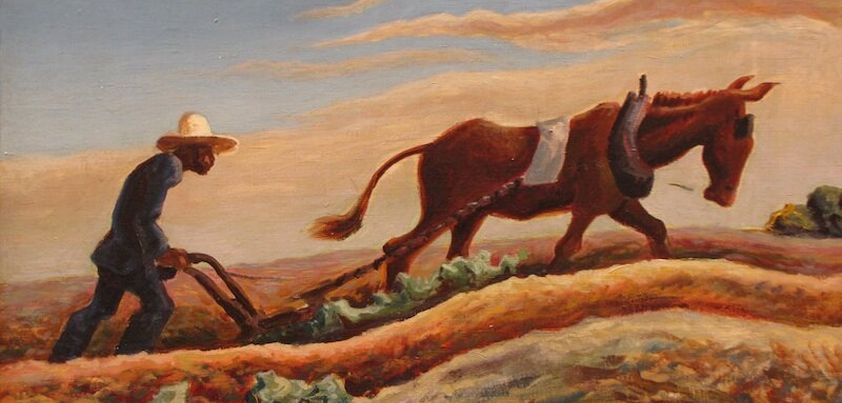 At seventeen, Richard Wright’s naïve protagonist (Dave) is old enough and strong enough to do a man’s work. Unfortunately, his family and co-workers treat him like a boy. Dave buys a gun, believing that having one will win him the respect he deserves. Instead, a wayward shot when he first uses it brings humiliation. Despite the accident, the gun gives Dave a sense of power. Faced with losing it and resuming his former life, he leaves town to look for somewhere a seventeen-year-old with a gun can be a man. Themes: class/racism, coming of age, respect, rebellion, the gun debate. More…
At seventeen, Richard Wright’s naïve protagonist (Dave) is old enough and strong enough to do a man’s work. Unfortunately, his family and co-workers treat him like a boy. Dave buys a gun, believing that having one will win him the respect he deserves. Instead, a wayward shot when he first uses it brings humiliation. Despite the accident, the gun gives Dave a sense of power. Faced with losing it and resuming his former life, he leaves town to look for somewhere a seventeen-year-old with a gun can be a man. Themes: class/racism, coming of age, respect, rebellion, the gun debate. More…
The American Embassy
 Set following Nigeria’s 1993 military coup, this Chimamanda Adichie story includes themes of corruption, civil unrest and army brutality. The protagonist has a seemingly perfect case for U.S. asylum. Her anti-government journalist husband has already fled to America, and some troops searching for him accidentally shot their four-year-old son. Yet mid-way through the visa interview, she decides not to continue. The shooting has caused her to question their future together. This introduces two additional themes: the strong ties Africans have to their roots, and the importance of traditions… in this case the need for someone to tend the boy’s grave. More…
Set following Nigeria’s 1993 military coup, this Chimamanda Adichie story includes themes of corruption, civil unrest and army brutality. The protagonist has a seemingly perfect case for U.S. asylum. Her anti-government journalist husband has already fled to America, and some troops searching for him accidentally shot their four-year-old son. Yet mid-way through the visa interview, she decides not to continue. The shooting has caused her to question their future together. This introduces two additional themes: the strong ties Africans have to their roots, and the importance of traditions… in this case the need for someone to tend the boy’s grave. More…
Dry September
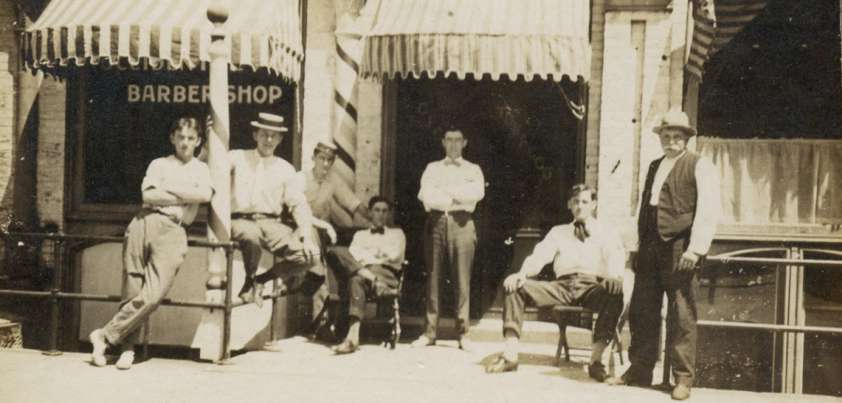 William Faulkner’s Dry September deals with events leading up to and shortly after the vigilante murder of a presumably innocent man. Set in a racially prejudiced community in America’s South, a misplaced or malicious complaint from a middle-aged spinster incites hatred against a local negro. Only one man (the town barber) stands up for him. A decorated ex-soldier leads a mob to avenge the woman’s honor. After the killing, the reliability of the woman’s story is called into question, as is the mental condition of the soldier who is shown to be violent by nature and possibly suffering from PTSD. More…
William Faulkner’s Dry September deals with events leading up to and shortly after the vigilante murder of a presumably innocent man. Set in a racially prejudiced community in America’s South, a misplaced or malicious complaint from a middle-aged spinster incites hatred against a local negro. Only one man (the town barber) stands up for him. A decorated ex-soldier leads a mob to avenge the woman’s honor. After the killing, the reliability of the woman’s story is called into question, as is the mental condition of the soldier who is shown to be violent by nature and possibly suffering from PTSD. More…
Evening Primrose
 It is always nice to find a story with a quirky, innovative storyline. John Collier’s Evening Primrose is in the form of a journal describing the experiences of a failed poet who gives up the outside world to spend the rest of his life living in a department store. He plans to hide out by day and wander the store at night collecting food and other necessities. To his surprise, he finds that a small community of like-minded people already inhabit the store. The only things they fear are discovery by the night watchman and the gruesome “Dark Men.” More…
It is always nice to find a story with a quirky, innovative storyline. John Collier’s Evening Primrose is in the form of a journal describing the experiences of a failed poet who gives up the outside world to spend the rest of his life living in a department store. He plans to hide out by day and wander the store at night collecting food and other necessities. To his surprise, he finds that a small community of like-minded people already inhabit the store. The only things they fear are discovery by the night watchman and the gruesome “Dark Men.” More…
Dante and the Lobster
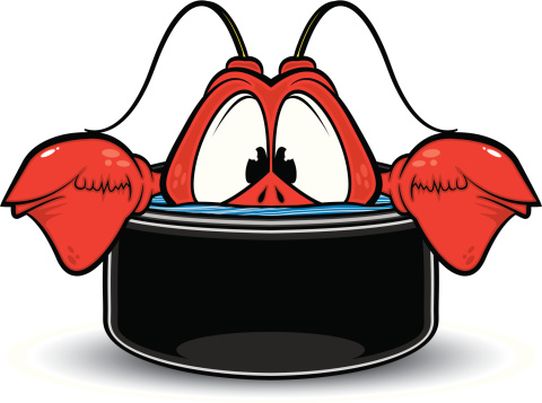 For me, this early story from Samuel Beckett suffers from over-use of allusion. The assumption that readers will be familiar enough with Dante’s Divine Comedy to understand its nuances suggests a writer out of touch with his audience. Hidden among the allusions is an absurdist comedy spanning an afternoon in the life of a solitary, eccentric student having trouble with his studies. He is fanatical about unimportant things (such as making the perfect toasted sandwich) and apathetic towards the things that matter. Themes: the meaningless and futility of life, death and dying. More…
For me, this early story from Samuel Beckett suffers from over-use of allusion. The assumption that readers will be familiar enough with Dante’s Divine Comedy to understand its nuances suggests a writer out of touch with his audience. Hidden among the allusions is an absurdist comedy spanning an afternoon in the life of a solitary, eccentric student having trouble with his studies. He is fanatical about unimportant things (such as making the perfect toasted sandwich) and apathetic towards the things that matter. Themes: the meaningless and futility of life, death and dying. More…
Everyday Use
 Alice Walker’s study of mother-daughter relationships explores contrasting attitudes towards heritage. A self-centered college graduate (Dee) visits her mother, a poor farming widow. The mother values her African-American heritage; Dee tries to exploit it. Their positions are exemplified in a family heirloom: a hand-stitched quilt that has been promised to Dee’s sister. Dee demands it, claiming that such things are now trendy and valuable. She claims it will be wasted on her sister, who will probably put it to “everyday use”. Themes: heritage, racial identity, connection through tradition, appearance, materialism (the effect of higher education / city life on values). More…
Alice Walker’s study of mother-daughter relationships explores contrasting attitudes towards heritage. A self-centered college graduate (Dee) visits her mother, a poor farming widow. The mother values her African-American heritage; Dee tries to exploit it. Their positions are exemplified in a family heirloom: a hand-stitched quilt that has been promised to Dee’s sister. Dee demands it, claiming that such things are now trendy and valuable. She claims it will be wasted on her sister, who will probably put it to “everyday use”. Themes: heritage, racial identity, connection through tradition, appearance, materialism (the effect of higher education / city life on values). More…
The Pardon of Becky Day
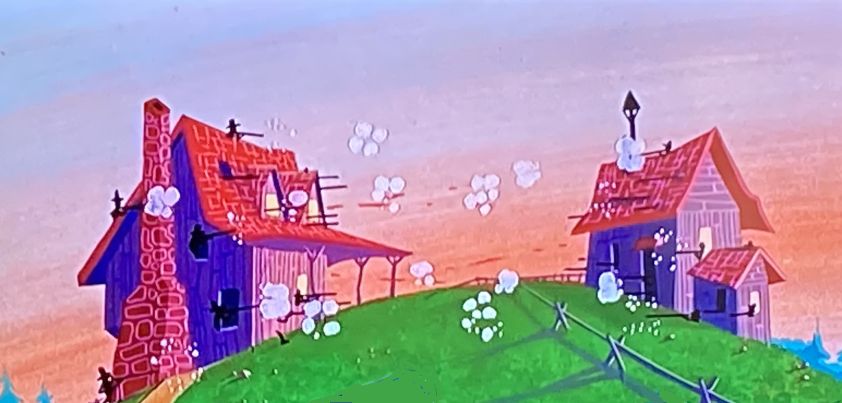 A motif of this classic Western by John Fox, Jr. could well be the scheming nature of women. A neighbor misled the community as to Becky’s virtue to win her boyfriend Jim’s heart; both women manipulate the men around them to maintain their “honor”; a missionary uses the threat of a deathbed curse to force the reluctant neighbor to seek Becky’s forgiveness; and, based on the smile on Becky’s face when she dies, her words of forgiveness may have been feigned to make sure that she will “git thar” [where Jim is] first. Themes: deception, hate, lawless violence, forgiveness, superstition. More…
A motif of this classic Western by John Fox, Jr. could well be the scheming nature of women. A neighbor misled the community as to Becky’s virtue to win her boyfriend Jim’s heart; both women manipulate the men around them to maintain their “honor”; a missionary uses the threat of a deathbed curse to force the reluctant neighbor to seek Becky’s forgiveness; and, based on the smile on Becky’s face when she dies, her words of forgiveness may have been feigned to make sure that she will “git thar” [where Jim is] first. Themes: deception, hate, lawless violence, forgiveness, superstition. More…
The Imitation of the Rose
 If you are looking for a light read, this story by Clarice Lispector is not for you! The protagonist (Laura) has just come home from hospital following a nervous breakdown. Her husband has expectations about a having a “normal” night out together with friends. The story has little more by way of plot, taking place mostly in Laura’s mind. The main themes are mental health, gender identity and family roles. By nature a submissive and withdrawn person, Laura is successfully adjusting to life back at home. Unfortunately, deciding on what to do with a bunch of roses rekindles her anxiety. More…
If you are looking for a light read, this story by Clarice Lispector is not for you! The protagonist (Laura) has just come home from hospital following a nervous breakdown. Her husband has expectations about a having a “normal” night out together with friends. The story has little more by way of plot, taking place mostly in Laura’s mind. The main themes are mental health, gender identity and family roles. By nature a submissive and withdrawn person, Laura is successfully adjusting to life back at home. Unfortunately, deciding on what to do with a bunch of roses rekindles her anxiety. More…
The Son from America
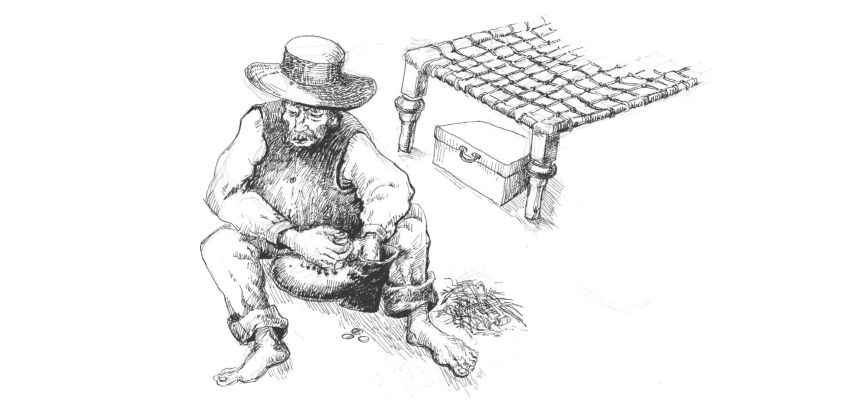 The major theme of this moving story by Isaac Singer is contentment. Set in a Polish farming village during the late 19th century, an old couple eke out a meager existence following their traditional way of life. Hidden away in their hut is a small fortune, saved from money sent over the years by their son in America. When the son visits with plans to provide further help and improve the amenities of the village, his offers are rejected. Additional themes: family, money vs. happiness, religious faith, community spirit, change (urbanization, invention), pace of life (city vs. country). More…
The major theme of this moving story by Isaac Singer is contentment. Set in a Polish farming village during the late 19th century, an old couple eke out a meager existence following their traditional way of life. Hidden away in their hut is a small fortune, saved from money sent over the years by their son in America. When the son visits with plans to provide further help and improve the amenities of the village, his offers are rejected. Additional themes: family, money vs. happiness, religious faith, community spirit, change (urbanization, invention), pace of life (city vs. country). More…
Knock
 This story by Fredric Brown begins and ends with what some claim is the shortest horror story ever written: The last man on Earth sat alone in a room. There was a knock on the door… A scientist wakes to find himself in a cell. The previous night Alien invaders had collected 217 animal species, including him, for study. They then destroyed all other animal life on the planet. He devises a clever way to convince the aliens that living on Earth is not a good idea. After they have all gone, he hears the second knock on the door. More…
This story by Fredric Brown begins and ends with what some claim is the shortest horror story ever written: The last man on Earth sat alone in a room. There was a knock on the door… A scientist wakes to find himself in a cell. The previous night Alien invaders had collected 217 animal species, including him, for study. They then destroyed all other animal life on the planet. He devises a clever way to convince the aliens that living on Earth is not a good idea. After they have all gone, he hears the second knock on the door. More…
The Faith Cure Man
 In this story from Paul Dunbar, a faith healer provides the last hope for a desperate woman who has been told that medical science can do nothing more for her seriously ill daughter. Despite the narrator’s skepticism, the tragic ending neither proves nor disproves the validity of faith healing. Although the mother certainly has the “faith”, the poor child is too young and/or sick to understand or even care about what is happening around her. The major theme of the story is that distraught people are easy prey to those offering false hope. Other themes: love, desperation, hope, faith, death. More…
In this story from Paul Dunbar, a faith healer provides the last hope for a desperate woman who has been told that medical science can do nothing more for her seriously ill daughter. Despite the narrator’s skepticism, the tragic ending neither proves nor disproves the validity of faith healing. Although the mother certainly has the “faith”, the poor child is too young and/or sick to understand or even care about what is happening around her. The major theme of the story is that distraught people are easy prey to those offering false hope. Other themes: love, desperation, hope, faith, death. More…
The District Doctor
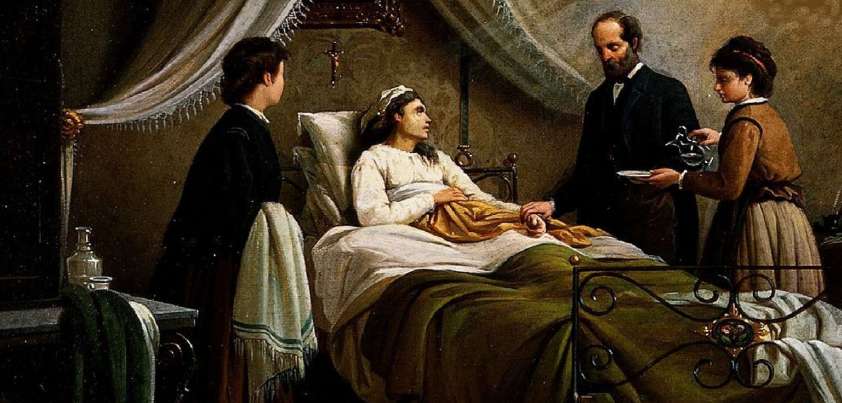 The major themes of this story by Ivan Turgenev are duty, lying, love, death and betrayal. A doctor becomes infatuated with a beautiful 20-year-old patient. As the woman’s condition worsens, he lies to her family about her chances of recovery. On sensing her coming death, the woman tells the doctor she loves him. He replies that he also loves her, accepts her ring, and promises to ask for her mother’s blessing. When the woman confesses their love to her mother, the doctor denies everything and blames her fever. Broken-hearted, she for asks his forgiveness and re-affirms her love before dying. More…
The major themes of this story by Ivan Turgenev are duty, lying, love, death and betrayal. A doctor becomes infatuated with a beautiful 20-year-old patient. As the woman’s condition worsens, he lies to her family about her chances of recovery. On sensing her coming death, the woman tells the doctor she loves him. He replies that he also loves her, accepts her ring, and promises to ask for her mother’s blessing. When the woman confesses their love to her mother, the doctor denies everything and blames her fever. Broken-hearted, she for asks his forgiveness and re-affirms her love before dying. More…